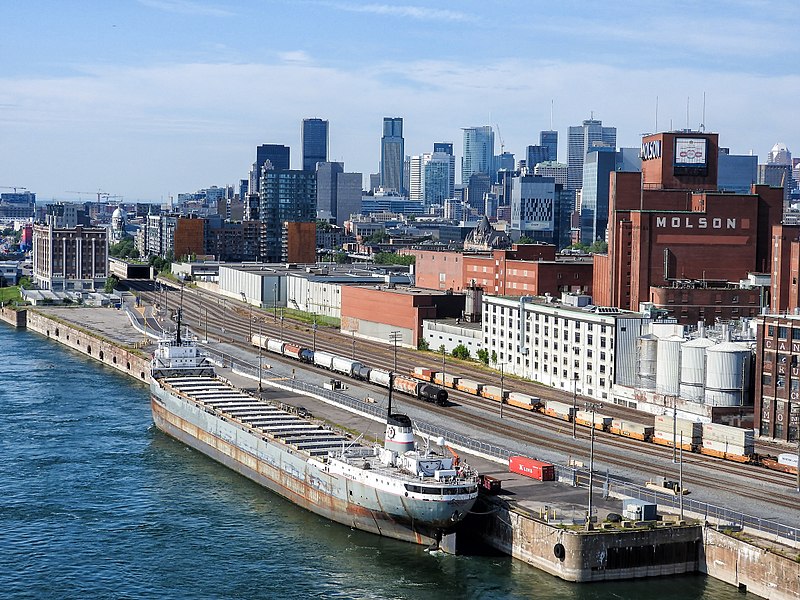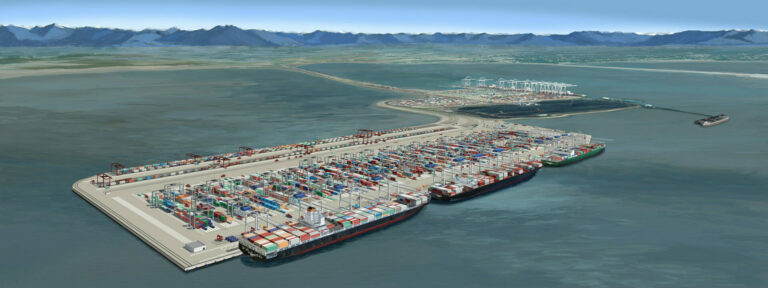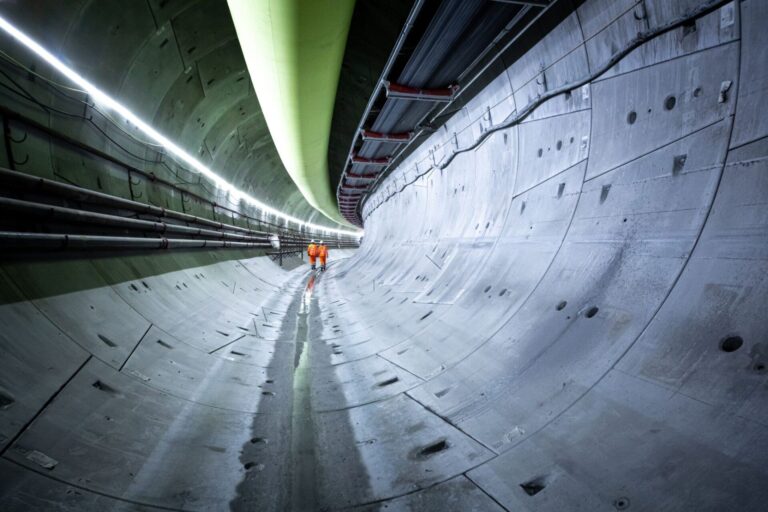The Canada Infrastructure Bank announced it is committing up to $300 million in financing to the Port of Montreal’s project to build a new container terminal in Contrecoeur.
The financing provides much-needed support for the expansion of the largest port in Eastern Canada, which must expand its activities to fully participate in national economic growth. This project will enable the port to meet the needs of the market in the coming decades.
“This financial commitment demonstrates how the CIB works with the public and private sectors to deliver projects that support economic growth. The Contrecoeur expansion will strengthen and diversify our trade with other countries. Given the Port’s central role in the Canadian economy, this wealth creation will have an impact on the entire country,” said Pierre Lavallée, President and CEO of the CIB.
“The CIB is now participating in seven projects. They are in different sectors, different regions, and all have potential for green benefits. Without the Contrecoeur terminal, ships would have to travel to U.S. ports, which would increase GHG and air pollutant emissions,” he indicated.
CIB’s support will allow the Port of Montreal to increase its container handling capacity. “We will be more competitive, which will strengthen Montreal’s role as a hub for maritime trade in Eastern Canada. This will support national economic prosperity through job creation and supply chain development,” said Sylvie Vachon, President and CEO of the Port of Montreal.
This announcement follows the signing of a memorandum of understanding between the CIB and the Port of Montreal last August. The two organizations collaborated to develop the Contrecoeur project, particularly in terms of financial structure. “Given CIB’s mandate is to attract private investment in projects of public interest, this support validates the national importance of our project and the strength of its structure,” added Vachon.
The CIB’s financial commitment is a major step forward in the development of the Contrecoeur project. It enables the Port of Montreal to continue working, in collaboration with the private sector, to complete the financial structuring of the project by promoting the fact that the project benefits from a solid financial commitment of 300 million dollars from the CIB.
“Canada must use every tool we have to finance transformative infrastructure that supports sustainable economic growth. The Canada Infrastructure Bank has the expertise and financial heft to help unite the country behind projects that benefit Canadians by strengthening our national economy,” said Minister of Infrastructure and Communities Catherine McKenna.
CIB’s financial commitment is a provision of long-term capital to bridge the gap between periods of construction, revenue growth, and achieving profitability of the container terminal.
The financing of the CIB is a recognition of the transformative nature of the Contrecoeur terminal project. This commitment also illustrates the interest of market players in the project and its potential to attract private investors.
For his part, Transport Minister Marc Garneau pointed out that “Contrecœur’s project is central to the development of the Canadian supply chain and the Greater Montreal’s positioning as a gateway to the North American market. Investing in our key trade infrastructure is essential to grow our economy and provide good jobs for Canadians.”
The Port of Montreal is the largest port in Eastern Canada and the only container port in Quebec. In 2018, the Port of Montreal handled more than 1.7 million TEU containers (Twenty Feet CIB’s financial commitment announcement is supported by Equivalent).











